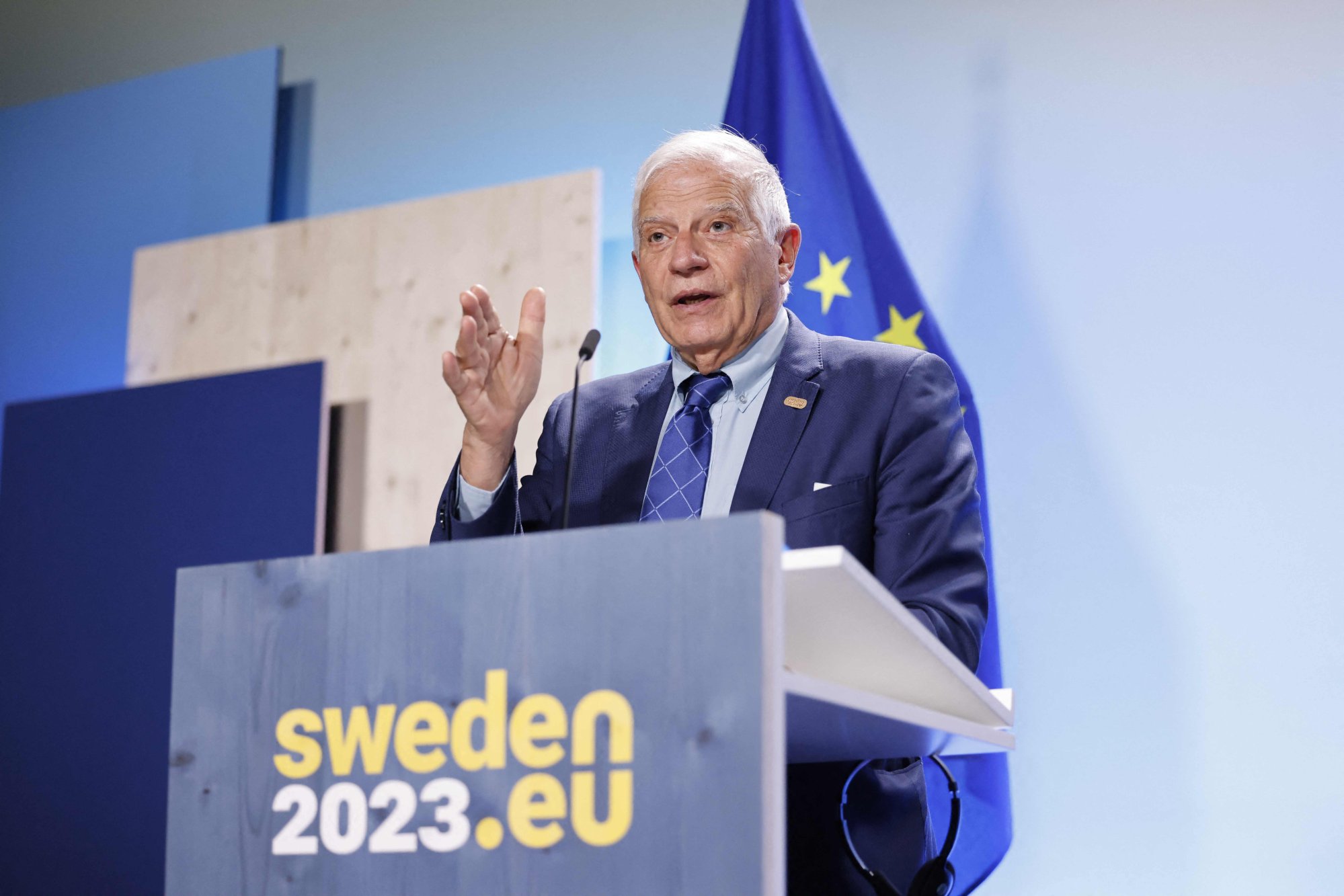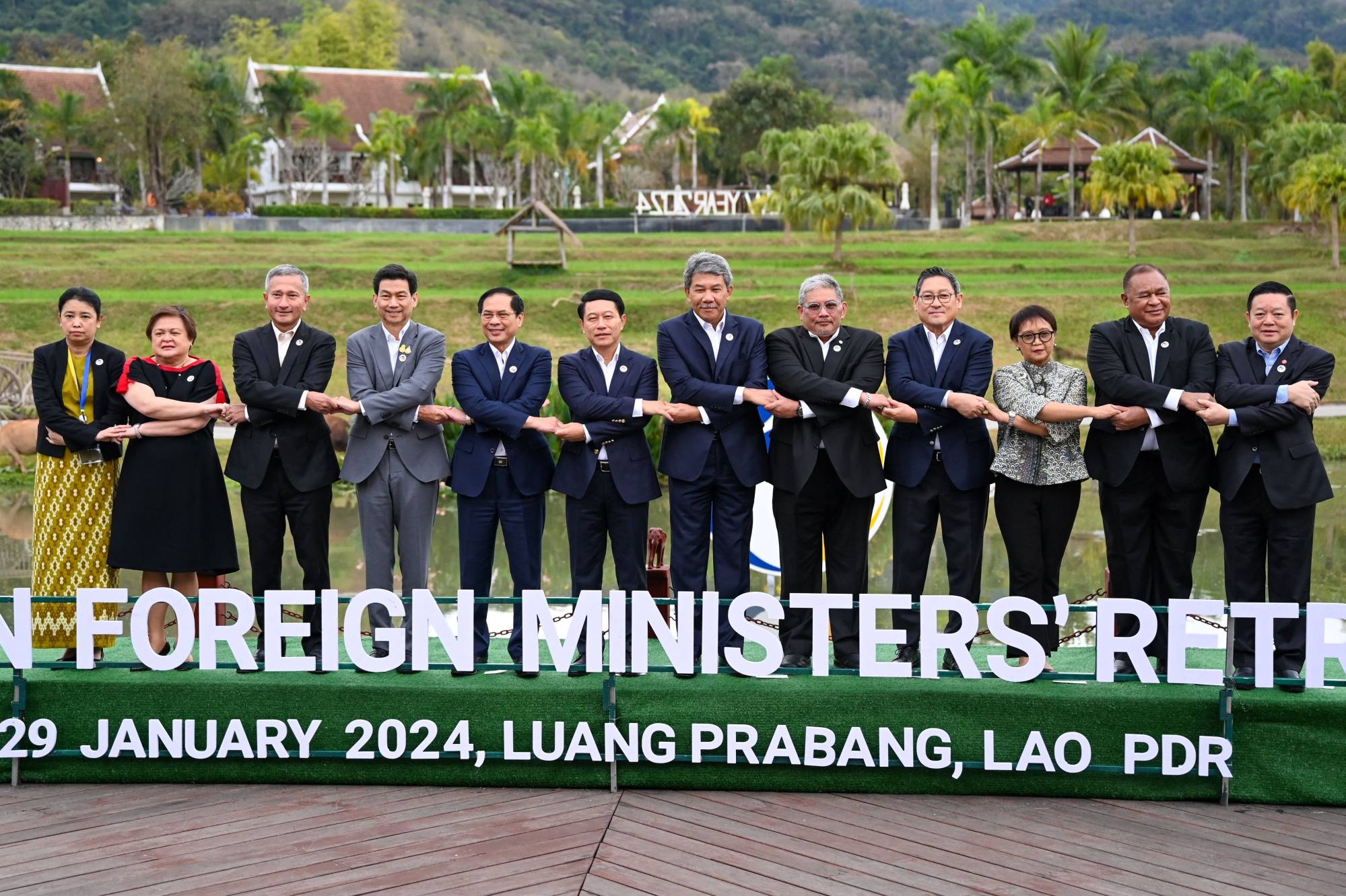European Union forum on Indo-Pacific will lack US and China, which were not invited
Although it was not represented at the inaugural summit in Paris in 2022, Washington sent a high-level delegation to the second edition of the forum in Stockholm last year, led by Derek Chollet, counsellor of the US Department of State.

The EU did not immediately respond to a request seeking an explanation for the snub.
Britain has also been left off the invitation list. Last year, the former EU member sent a junior minister of state to Stockholm, Lord Ahmad of Wimbledon.
Brussels is keeping the guest list under tight wraps for now. A senior EU official said it would only release a record of attendees, rather than invitees.
One European diplomat suggested the bloc did not want to appear “anti-China” as it looked to build bridges with nations spanning the Pacific Islands, East Africa and Asia.
EU fails to secure Southeast Asian backing over Ukraine war
EU fails to secure Southeast Asian backing over Ukraine war
However the EU official confirmed that China had not been invited for the third straight year, saying that Beijing “has not pursued engagement with partners in line with our concept of the Indo-Pacific”.
“You haven’t heard China talk about the Indo-Pacific as a concept they would like to engage with,” the official said. “There are lots of formats in which we engage with China fully and completely.”
The forum faces stiff competition for the limelight in the Belgian capital this week.
As the Russian war in Ukraine blazes towards its second anniversary, EU leaders will try to convince Hungary on Thursday to lift its veto and unlock more EU funding for Kyiv. The bloc’s foreign ministers will also meet on Saturday for their twice-yearly informal meeting known as the Gymnich.
Between those two events, a trio of Indo-Pacific events are on tap. On Thursday, the European Parliament is to host the ministers of Pacific island nations. On Friday morning, the Indo-Pacific Forum will be held, while later in the day foreign ministers from the EU and the Association of Southeast Asian Nations (Asean) will have dinner.

That will be the highest-profile EU-Asean meeting since a leaders forum in December 2022. A draft of the joint statement to be released after the summit recycles much of the language on controversial issues from that event.
The draft, marked as agreed to by both sides, said “most members strongly condemned the war in Ukraine and stressed it is causing immense human suffering”, but stopped short of naming Moscow. It adds that there were “other views and different assessments of the situation and sanctions”.
Nor does the draft name Taiwan. It urges parties in the South China Sea to “exercise self-restraint in the conduct of all activities” and “encourages all countries to avoid any unilateral actions that endanger peace, security, and stability in the region”.
Joint text on thorny issues such as Gaza, Myanmar and North Korea had yet to be agreed on by Tuesday afternoon. Asean negotiators proposed calling for a “durable ceasefire” in the Middle East, but it was unclear whether the language would make the cut.
Despite the perceived snub of Washington, senior EU and US officials met on Tuesday in the US capital for a slimmed-down edition of their Trade and Technology Council.
EU joins US in ‘depriving China of the most advanced chips’, official says
EU joins US in ‘depriving China of the most advanced chips’, official says
In a speech to US businesses ahead of the council meeting, EU trade chief Valdis Dombrovskis warned that weakening the global trading architecture would only benefit America’s rivals.
“A fragmented trading system based on power relations will harm everybody and benefit no one – with the exception perhaps of China,” he said.
“If Western countries, including the US, want to maintain a rules-based world order and balance China’s influence in particular, there is no alternative to strengthening transatlantic leadership in these fora.”

